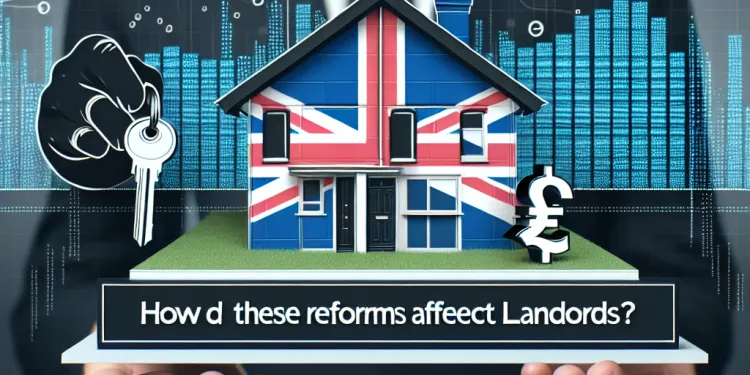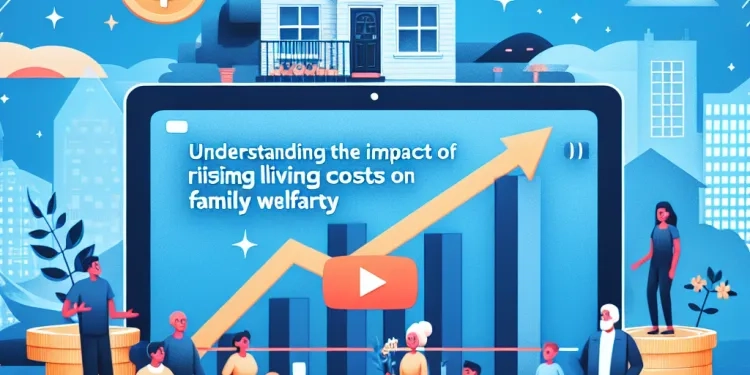
Find Help
More Items From Ergsy search
-

How will the cuts impact landlords?
Relevance: 100%
-

What are the potential long-term impacts of housing benefit cuts?
Relevance: 62%
-

What can tenants do if they are affected by the cuts?
Relevance: 54%
-

Proposed Welfare Cuts and Their Impact on Vulnerable Populations
Relevance: 54%
-

How do these reforms affect landlords?
Relevance: 47%
-

How will the proposed cuts impact tenants?
Relevance: 44%
-

What are the proposed Cuts to Housing Benefits Amid Rising Rents?
Relevance: 43%
-

Can my landlord evict me without providing a reason?
Relevance: 42%
-

Is there a plan to offer additional support to offset housing benefit cuts?
Relevance: 42%
-

What can I do if my landlord wants to evict me?
Relevance: 42%
-

Who will be most affected by the proposed cuts to housing benefits?
Relevance: 42%
-

What is the relationship between rising rents and housing benefit cuts?
Relevance: 41%
-

Can I negotiate with my landlord to avoid eviction?
Relevance: 41%
-

Are landlords required to provide energy performance certificates?
Relevance: 40%
-

How are disputes between landlords and tenants handled?
Relevance: 40%
-

Landlord Licensing Laws Under Review as Tenants Call for Stronger Protections
Relevance: 40%
-

Can a landlord lock me out or remove my belongings to evict me?
Relevance: 39%
-

What is the main reason for the proposed cuts to housing benefits?
Relevance: 39%
-

When are the proposed cuts expected to take effect?
Relevance: 39%
-

What advocacy efforts are being undertaken to resist the cuts?
Relevance: 39%
-

Are there any groups exempt from the proposed cuts?
Relevance: 39%
-

Can a landlord evict me for complaining about property conditions?
Relevance: 38%
-

Why is the UK cutting funding to AIDS, Tuberculosis, and Malaria research?
Relevance: 38%
-

Legal Aid Cuts: Campaigners Warn of Access to Justice Crisis
Relevance: 38%
-

Why is there a call for public consultation regarding the cuts?
Relevance: 38%
-

How does the reform impact renting costs?
Relevance: 37%
-

How can individuals contribute to the discussion on housing benefit cuts?
Relevance: 37%
-

What should I do if I receive an eviction notice from my landlord?
Relevance: 37%
-

What role do housing associations have amid these cuts?
Relevance: 36%
-

Is there any legal recourse for those affected by the housing benefit cuts?
Relevance: 36%
-

5 Broker Exclusive Buy to Let Mortgage Lenders you need to know about as a Landlord
Relevance: 35%
-

Watchdog Raises Concerns Over Commercial Landlord Regulations
Relevance: 29%
-

What impact does sealing my police records have?
Relevance: 26%
-

How Rising Living Costs Are Impacting Family Wellbeing
Relevance: 24%
-

Understanding the Impact of Rising Living Costs on Family Welfare
Relevance: 24%
-

What are the consequences of having an eviction on my record?
Relevance: 23%
-

What are the health impacts of the US leaving WHO?
Relevance: 23%
-

Can eviction affect my credit score?
Relevance: 23%
-

Debate Intensifies Over Welfare Reforms Impacting Disabled Citizens
Relevance: 23%
-

What changes affect pet policies in rented homes?
Relevance: 23%
Introduction
In the current economic climate, landlords in the UK are facing a number of challenges. Recent government cuts and changes to taxation policies are having significant impacts on their financial situation and operations. It is important for landlords to understand these changes and how they will be affected both in the short and long term.
Changes in Taxation
One of the most significant changes affecting landlords in the UK is the alteration in tax policies. The phased reduction of mortgage interest tax relief, which started in 2017, has been fully implemented. This means landlords can no longer deduct mortgage expenses from their rental income to reduce their tax bills. Instead, they receive a tax credit based on 20% of their mortgage interest payments. This change primarily impacts higher and additional rate taxpayers, potentially increasing their tax burden and reducing profitability.
Impact of Universal Credit
The rollout of Universal Credit has also had unintended consequences for landlords. Housing Benefit, which was previously paid directly to landlords, is now incorporated into Universal Credit and paid to tenants. This shift can result in delays and arrears in rent payment if tenants struggle with budgeting or prioritizing their rent obligations. Landlords need to be vigilant and proactive in managing such risks through regular communication with tenants and early intervention in cases of arrears.
Enhanced Regulations
Another challenge facing landlords is the increased regulatory burden. Recent legislation aimed at improving tenant rights and safety, such as the Tenant Fees Act and increased energy efficiency standards, have added to landlords' responsibilities. While these regulations intend to create a fairer market and more sustainable living conditions, compliance incurs additional costs for landlords. They must ensure their properties meet the new standards or face fines and legal action.
Financial Considerations
Landlords are also impacted by changes to the financial landscape, including rising interest rates. Many landlords have leveraged properties with mortgage finance, and any increase in interest rates can significantly affect their profitability. As borrowing costs rise, landlords may experience reduced cash flow, affecting their ability to maintain or expand their property portfolios.
Conclusion
In conclusion, the combination of tax changes, benefit reforms, increased regulation, and changing financial conditions presents numerous challenges for landlords. While some may decide to exit the market, those who choose to remain must adapt to the evolving landscape. This involves reassessing financial strategies, staying informed on legislative changes, and maintaining a strong line of communication with tenants. By doing so, landlords can mitigate risks and continue to manage successful rental businesses in the UK’s dynamic property market.
Frequently Asked Questions
What are the cuts being referred to?
The cuts refer to government policies or budget changes that may reduce financial support or tax benefits previously available to landlords.
How will rental income be affected by the cuts?
Rental income may be affected if tenants receive less government assistance for housing, potentially impacting their ability to pay rent.
Will the cuts impact property maintenance budgets?
Landlords may need to re-evaluate maintenance budgets if their overall income is reduced due to cuts, potentially leading to less frequent updates or repairs.
Are tax cuts for landlords being reduced or eliminated?
Some cuts may involve reducing or eliminating specific tax benefits that landlords previously relied on, impacting their net income.
Can these cuts lead to an increase in rent prices?
Landlords might consider raising rent prices to offset potential losses from the cuts, though this depends on market conditions.
What financial assistance is still available to landlords?
Landlords may need to explore any remaining local or national programs that provide financial assistance or incentives.
How will the cuts affect small-scale versus large-scale landlords?
Small-scale landlords may feel the impact of cuts more acutely as they often have fewer financial reserves compared to larger companies.
What strategies can landlords use to mitigate the impact of the cuts?
Landlords can mitigate impacts by reducing costs, seeking financial advice, or diversifying their property portfolios.
Will cuts have an impact on the property market value?
Cuts could potentially depress property values if they lead to a significant number of landlords selling off properties.
Are there any legal changes affecting landlords due to the cuts?
It's important for landlords to stay informed about any legislative changes accompanying financial cuts that may affect their obligations.
Are there opportunities for landlords to benefit from any of the cuts?
Some cuts may open up opportunities for landlords to acquire properties at a reduced price or benefit from certain tax incentives.
How can landlords support tenants affected by cuts?
Landlords may consider flexible payment plans or temporary rent reductions to help tenants coping with reduced assistance.
What is the long-term outlook for landlords following these cuts?
The long-term impact depends on the broader economic context and the ability of landlords to adapt to new financial realities.
Are there insurance implications for landlords due to the cuts?
Landlords should review their insurance policies to ensure adequate coverage in a changing financial environment.
Will the cuts impact the demand for rental properties?
Demand for rental properties may fluctuate depending on how cuts affect the overall housing affordability and availability.
Can landlords access government support to adapt to the cuts?
Some government programs may offer support or guidance to landlords during transitional periods following policy cuts.
How should landlords communicate with tenants about the impact of cuts?
Landlords should communicate clearly and empathetically with tenants, providing information about any changes in policies.
Is there a risk of increased vacancy rates due to the cuts?
Increased vacancy rates could occur if tenants move out due to unaffordable rents or lack of subsidies.
How can landlords stay informed about changes resulting from the cuts?
Landlords should keep up with news updates, industry reports, and government announcements regarding any policy changes.
What role do property management companies play in adapting to cuts?
Property management companies can provide expertise and services to help landlords navigate financial and operational challenges.
Useful Links
This website offers general information and is not a substitute for professional advice.
Always seek guidance from qualified professionals.
If you have any medical concerns or need urgent help, contact a healthcare professional or emergency services immediately.
- Ergsy carfully checks the information in the videos we provide here.
- Videos shown by Youtube after a video has completed, have NOT been reviewed by ERGSY.
- To view, click the arrow in centre of video.
- Most of the videos you find here will have subtitles and/or closed captions available.
- You may need to turn these on, and choose your preferred language.
- Go to the video you'd like to watch.
- If closed captions (CC) are available, settings will be visible on the bottom right of the video player.
- To turn on Captions, click settings .
- To turn off Captions, click settings again.
More Items From Ergsy search
-

How will the cuts impact landlords?
Relevance: 100%
-

What are the potential long-term impacts of housing benefit cuts?
Relevance: 62%
-

What can tenants do if they are affected by the cuts?
Relevance: 54%
-

Proposed Welfare Cuts and Their Impact on Vulnerable Populations
Relevance: 54%
-

How do these reforms affect landlords?
Relevance: 47%
-

How will the proposed cuts impact tenants?
Relevance: 44%
-

What are the proposed Cuts to Housing Benefits Amid Rising Rents?
Relevance: 43%
-

Can my landlord evict me without providing a reason?
Relevance: 42%
-

Is there a plan to offer additional support to offset housing benefit cuts?
Relevance: 42%
-

What can I do if my landlord wants to evict me?
Relevance: 42%
-

Who will be most affected by the proposed cuts to housing benefits?
Relevance: 42%
-

What is the relationship between rising rents and housing benefit cuts?
Relevance: 41%
-

Can I negotiate with my landlord to avoid eviction?
Relevance: 41%
-

Are landlords required to provide energy performance certificates?
Relevance: 40%
-

How are disputes between landlords and tenants handled?
Relevance: 40%
-

Landlord Licensing Laws Under Review as Tenants Call for Stronger Protections
Relevance: 40%
-

Can a landlord lock me out or remove my belongings to evict me?
Relevance: 39%
-

What is the main reason for the proposed cuts to housing benefits?
Relevance: 39%
-

When are the proposed cuts expected to take effect?
Relevance: 39%
-

What advocacy efforts are being undertaken to resist the cuts?
Relevance: 39%
-

Are there any groups exempt from the proposed cuts?
Relevance: 39%
-

Can a landlord evict me for complaining about property conditions?
Relevance: 38%
-

Why is the UK cutting funding to AIDS, Tuberculosis, and Malaria research?
Relevance: 38%
-

Legal Aid Cuts: Campaigners Warn of Access to Justice Crisis
Relevance: 38%
-

Why is there a call for public consultation regarding the cuts?
Relevance: 38%
-

How does the reform impact renting costs?
Relevance: 37%
-

How can individuals contribute to the discussion on housing benefit cuts?
Relevance: 37%
-

What should I do if I receive an eviction notice from my landlord?
Relevance: 37%
-

What role do housing associations have amid these cuts?
Relevance: 36%
-

Is there any legal recourse for those affected by the housing benefit cuts?
Relevance: 36%
-

5 Broker Exclusive Buy to Let Mortgage Lenders you need to know about as a Landlord
Relevance: 35%
-

Watchdog Raises Concerns Over Commercial Landlord Regulations
Relevance: 29%
-

What impact does sealing my police records have?
Relevance: 26%
-

How Rising Living Costs Are Impacting Family Wellbeing
Relevance: 24%
-

Understanding the Impact of Rising Living Costs on Family Welfare
Relevance: 24%
-

What are the consequences of having an eviction on my record?
Relevance: 23%
-

What are the health impacts of the US leaving WHO?
Relevance: 23%
-

Can eviction affect my credit score?
Relevance: 23%
-

Debate Intensifies Over Welfare Reforms Impacting Disabled Citizens
Relevance: 23%
-

What changes affect pet policies in rented homes?
Relevance: 23%


